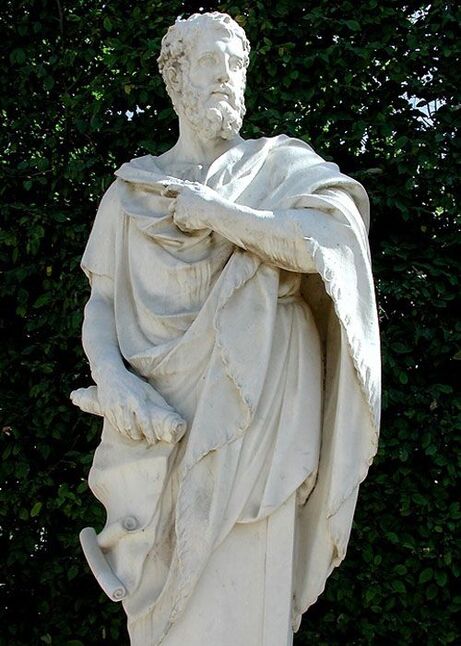Christians, from St. Jerome through St. Augustine to the Emperor Constantine, claimed this prophecy predicted the birth of Jesus. However, there were many others competing for the title of divus puer. Even mad Emperor Caligula claimed that he was the subject of the prophecy.
Apollonius of Tyana was another believed to be the divus puer. Even before he was born, it was known that Apollonius would be someone special. A supernatural being informed his mother that the child she was to conceive would not be a mere mortal but would be divine. He was born miraculously, and he became an unusually precocious young man. As an adult he left home and went on an itinerant preaching ministry, urging his listeners to live, not for the material things of this world, but for what was spiritual. He travelled from town to town and village to village proclaiming his message. He gathered disciples around him, who became convinced that his teachings were divinely inspired, in no small part because he himself was divine. He proved it to them by doing many miracles, healing the sick, casting out demons, and raising the dead.
Apollonius, an undoubtedly historical man, was born in Tyana in Central Anatolia around 3 BC. He was a follower of Pythagoras.
How do we know of him? His biography was preserved in the writings of a later follower named Philostratus. The biography was written as the request of Julia Domna, the wife of the emperor Septimus Severus, two hundred years after Apollonius died. Julia Domna's son, the emperor Caracalla, worshipped Apollonius and her grandnephew emperor Severus Alexander probably did as well.
Apollonius is mentioned by the Roman historian Cassius Dio. There are also letters written by Apollonius.
Eventually, Apollonius’ actions and preaching across the Roman world attracted unwelcome attention. His opponents fabricated charges against him and he was executed at the probable age of 85 for using magic to conspire against the emperor.
After Apollonius’ execution, some of his followers claimed that he had appeared to them; that they had touched him; and that he had ascended into heaven. Some of these followers went on to spread his message.
There is an inscription from a tomb in Cilicia, now held at a museum in Adana in Turkey. Translated from the Greek, it states - ‘This man, named after Apollo, and shining forth from Tyana, extinguished the faults of men. The tomb in Tyana (received) his body, but in truth, heaven received him so that he might drive out the pains of men’.
John Barry



 RSS Feed
RSS Feed
